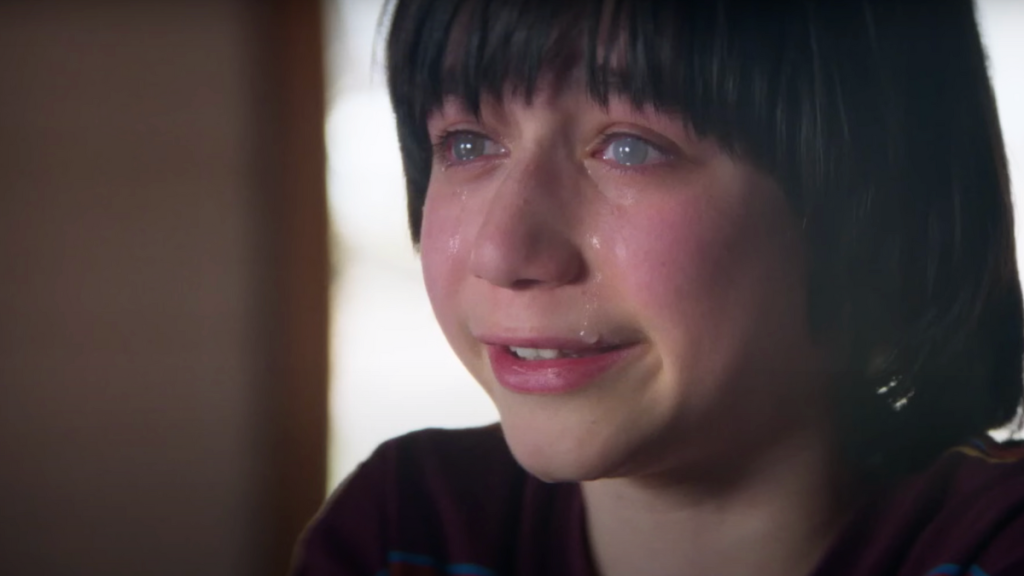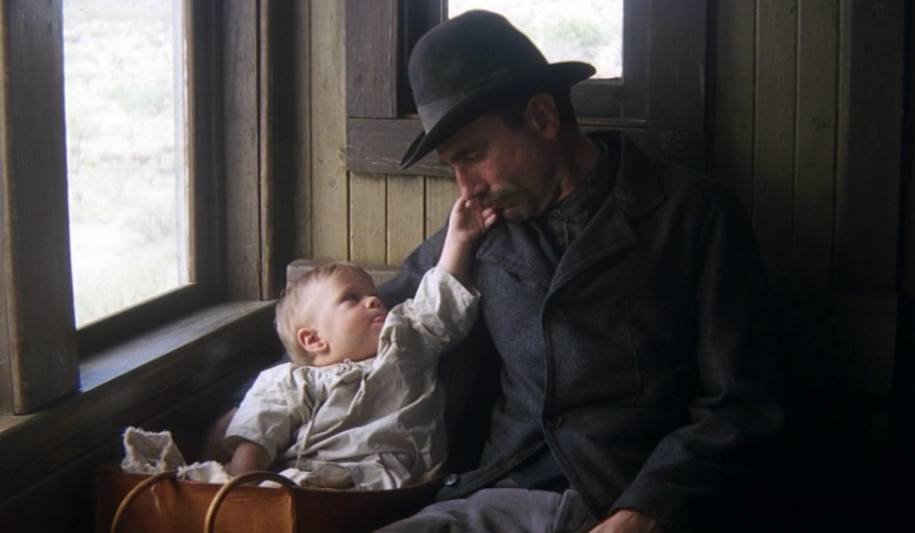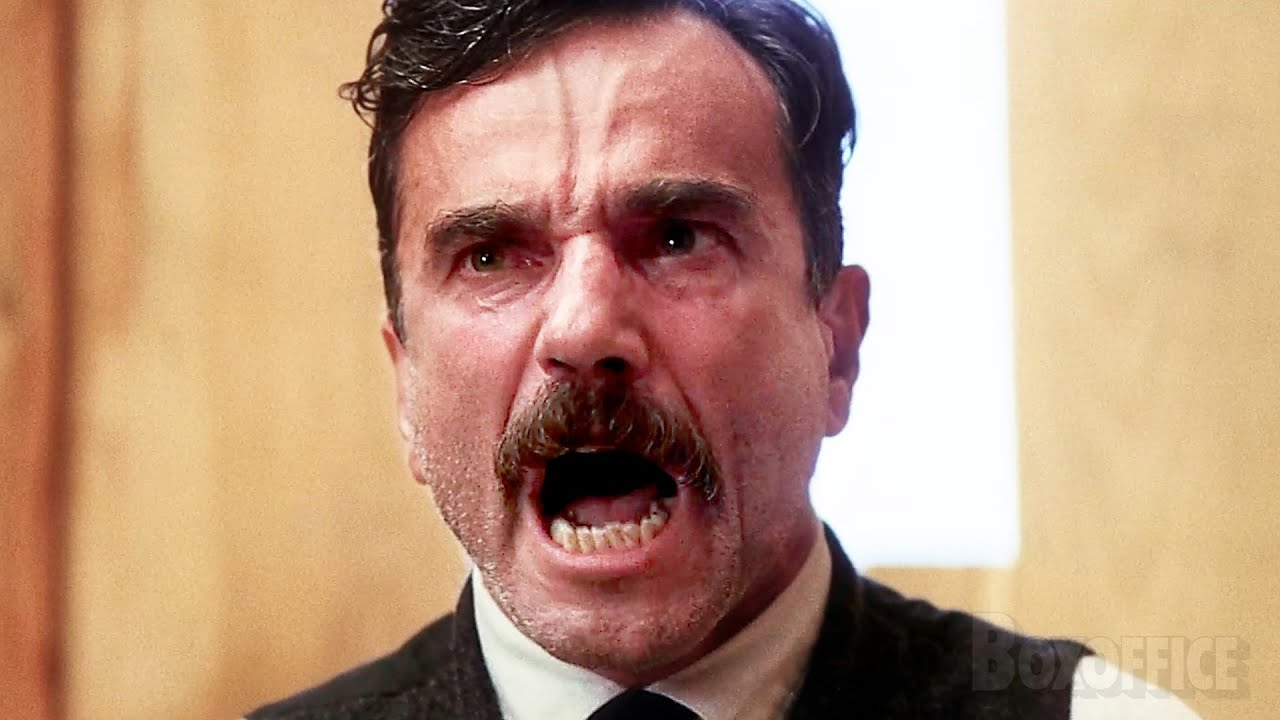There Will Be Blood is a much more curious case since the story is quite far removed from parenthood. Daniel Plainview, an oilman, moves to an uncultivated land, which he leases for cheap, and then grows his wealth through an expansive drilling business. What sets him apart from the other oilman, as he states in the beginning of the film (and once more painstakingly at the end) is that he is a family man. He brings his son, H.W Plainview around with him and calls him his partner as well. It's clear that Daniel has a mercantile perspective on his son, but it's also pretty apparent to me that he has real love for H.W.
If you haven't watched this film, then you can avoid this section as There Will be Spoilers.
A guttural scene, where Daniel lays out his emotions in an incredibly raw fashion. Daniel confesses, in front of a church congregation that he has abandoned H.W but if you know anything about his character, then you know he doesn't really care for the judgement of a few random churchgoers. Instead, the moment of realization hits him, that he has chosen his oil business over his child, that he has abandoned his boy. This is a powerful moment in the movie, and as for what I learned from it...well it's more about character writing for a Neowestern epic than for a family focused drama but I think there are lessons to take away from it in terms of composition (as previously mentioned, the two-shots). Most evidently, their final interaction is a shot-reverse-shot with an interpreter on the side, translating H.W's sign language, another layer of separation between Daniel and H.W. As Daniel's soul crumbles, he becomes further and further detached from H.W.
Anatomy of a Fall is more family-focused (I should mention that I will also be spoiling this film though not as much as I did for There Will be Blood). When Daniel's father dies, his mother is suspected as the killer, and Daniel, a blind-child, is the sole witness. Though it has a typical murder-mystery plot, it intertwines the family drama and whodunnit elements very cleanly. Daniel is shot far away from his parents most of the time, his mother, because he feels distanced from her as she becomes increasingly more villainous in his mind through evidence at the trial and his father, because, well, he's dead. Triet's crime-drama leaves the truth ambiguous, we only know that Sandra is acquitted legally but that it should not alleviate our doubts as to her guilt. The real climax of the film, then, is the consolidation inside of Daniel's mind about their family. Even though Sandra and Samuel had difficulties in their marriage, Daniel understands it as a story not of malice but of poorly organized ergonomics.
 |
| A fantastic performance from child actor, Milo Machado-Graner |
Both films are spectacular and you should definitely watch them if you haven't yet. If you missed my spoiler warning, sorry...






No comments:
Post a Comment